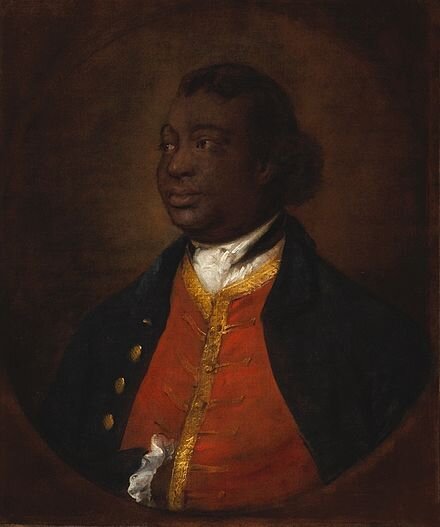Giovanni Gabrieli gets the fame, but he learned it all from his uncle Andrea, who studied with Lassus and kicked off the practice of polychoral music in Venice!
Giovanni Gabrieli
Most brass players know Giovanni Gabrieli for his canzonas, but his scope was much wider than that. Check out this fantastic video to hear more (and learn more from their excellent notes)!
Vibrato and historic organs
Following up on Early Music Sources’ excellent video on vibrato from a few weeks ago, here’s an article that explores the topic in more detail (especially about historic organs)!
Ignatius Sancho
Ignatius Sancho - ever heard of him?
He spent his early life enslaved (and then in service), and was also a writer and composer. Read more about him below and then come hear some of compositions in Handel + Haydn Society’s “Every Voice” concerts this weekend!
Hieronymus Praetorius
If Michael Praetorius was so important, how does Hieronymous Praetorius fit in?
Michael Praetorius
Why is Michael Praetorius so significant for early music theory? And how did a German end up with a Latin last name?
Dances from Terpsichore
This week’s Early Music Monday looks at once of my perennial favorites - Michael Praetorius - and Terpsichore, his fantastic collection of instrumental dances. Read more about the collection here, and then check out this fantastic video from Voices of Music!
A Mozart Celebration
My 2019-2020 season starts this coming weekend with a fantastic program of Mozart with Handel + Haydn Society! Check out these awesome program notes and then come hear it on Friday and Sunday!
Vibrato or no vibrato?
I generally live somewhere between the “straight-tone only” and “vibrato always” worlds, believing that the best singers do both, according to the needs and styles of the repertoire being performed. But what do the treatises say? Early Music Sources does an excellent job exploring the options (with special shout-outs to organ treatises and my perennial fav, Praetorius)!
Preview of The Bach Project presents Dashon Burton
This week’s Early Music Monday is a preview of The Bach Project’s concert coming up on Sunday! Check out the program notes (written by yours truly) and then come hear this fantastic program!
For tickets and more information, click here.


